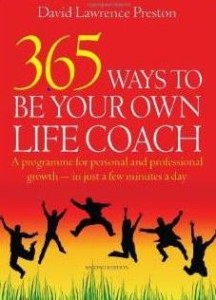There’s a wonderful sequence in Lewis Carroll’s ‘Alice in Wonderland’. Alice is lost in the woods when she encounters the Cheshire Cat looking down on her from the branch of a tree:
‘Cheshire Puss,’ Alice began rather timidly, ‘would you tell me please, which way I ought to go from here?’
‘That depends a good deal on where you want to get to,’ said the cat.
‘I don’t much care where…’ said Alice.
‘Then it doesn’t matter which way you go,’ said the cat.
‘… so long as I get somewhere,’ Alice added by way of explanation.
‘Oh you’re sure to do that,’ said the cat, ‘if you only walk long enough.’
Lewis Carroll was pointing out that there’s nothing more important than finding a sense of purpose and sense of direction. Yet numerous surveys have revealed that only 2-3% of the population have clearly defined goals. 12-15% have a hazy idea of what they want (most of them work for the 2-3%, helping them to achieve their goals). The remaining 80%+ haven’t even thought about it.
But you already set goals? When you wake up, you set yourself the goal of washing, dressing and having breakfast. You may have a goal to get to work on time. Each of these comprises many sub-goals, such as starting the car or arriving at the stop before your bus. Some of these goals are your own; others are set for you, by your boss, for example.
Let’s examine in detail why setting goals can make such a difference:
- Unless you feel a need of some sort, you have no reason to do anything. Goals identify and strengthen that need. Satisfied needs don’t motivate, but attainable and challenging goals certainly do.
- Setting goals clarifies and affirms your intentions.
- The unconscious houses a sophisticated guidance system, like an autopilot, which constantly seeks out whatever you consistently focus your attention on. Goals are simply present-day thoughts and mental images of desired future events. If you set the ‘co-ordinates’, your autopilot guides you towards where you want to go. But if you fail to select a destination, it takes you round in circles like a missile that has been fired without a target until you run out of energy or self-destruct. The unconscious doesn’t ask questions, it won’t reason with you, or query your demands. It simply does as it’s told.
- Many people think they’ll get a lot done if they keep busy. But ‘being busy’ is only the same as productive activity if your actions are goal-directed. Imagine a marathon runner heading off in the wrong direction: he’d cover the same distance at and expend as much effort as the other competitors, but would have no chance of winning.
- Discipline and self-mastery are two of the most noted qualities of successful people. The daily habit of reading through your list of goals improves your chances of success.
- You discover reserves of mental energy, creativity and imagination you probably didn’t know you had.
- You feel that you’re in charge of your own destiny.
The goal-setting technique should be taught to all children in school. Why aren’t they taught the power of goals already? Why do so few parents set a good example?
The first reason is that most adults don’t know how to set and achieve goals. They were never taught in their younger days.
The second reason is disempowering childhood programming and conditioning which often results in negative thinking lack of confidence.
A third reason is that people are often scared of what others think. They worry about looking ridiculous if they fail. However, these ‘friends’ whose opinions they value may be unwilling to take risks themselves and feel threatened by successful people.
Most people spend more time updating their Christmas lists than thinking seriously about their future. How about you?
©David Lawrence Preston, 27.7.2016
Follow me on Facebook and Twitter @David_Lawrence_Preston
How to Books, 2010



Leave a Reply